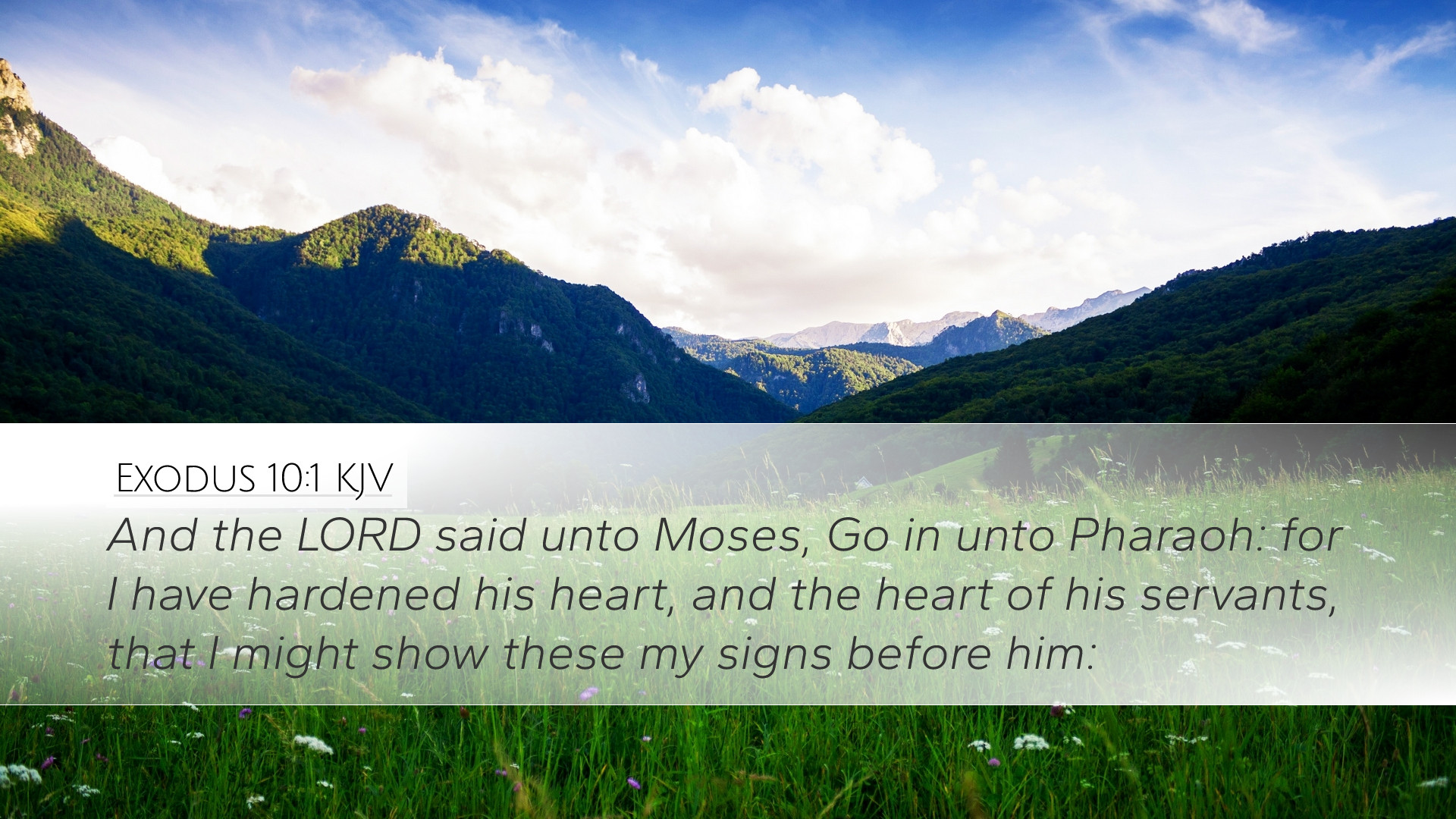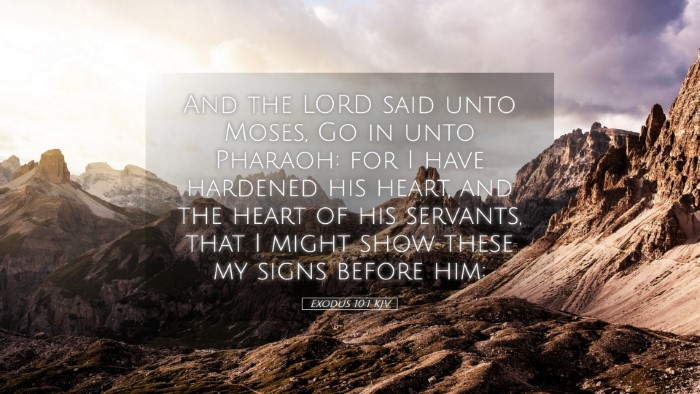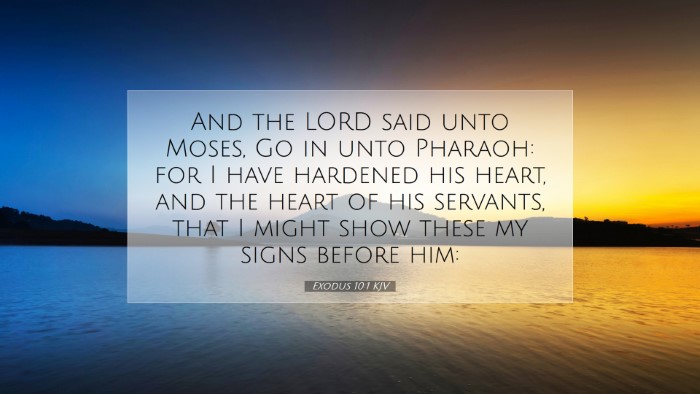Commentary on Exodus 10:1
Verse: "And the LORD said unto Moses, Go in unto Pharaoh: for I have hardened his heart, and the heart of his servants, that I might show these my signs before him."
Introduction
This verse occurs within the larger context of the plagues of Egypt, where Moses is commanded by God to approach Pharaoh once again. It illustrates ongoing themes of divine sovereignty, human rebellion, and the purpose behind the plagues—affirming God's ultimate authority over the natural world and human hearts.
Divine Sovereignty and Hardening of Hearts
Matthew Henry's Commentary: Henry emphasizes that God’s hardening of Pharaoh’s heart serves a greater purpose—for both the demonstration of His power and the enlightenment of His people. God's intervention illustrates His providence; by hardening Pharaoh, He orchestrates a course of events that not only reveals His might but preserves the story of His covenant with Israel.
Albert Barnes' Notes: Barnes points out that this hardening is not devoid of moral implications. Although God hardens Pharaoh’s heart, He does so in response to Pharaoh’s own continuous rebellion against divine authority. Barnest further remarks that this divine hardening exemplifies divine judgment, where God allows the sinful heart to pursue its own inclinations, a sobering reminder of the consequences of rejecting God.
Adam Clarke’s Commentary: Clarke elucidates that God’s declaration regarding Pharaoh’s heart can be somewhat perplexing, as it invites questions about free will and divine justice. He asserts that while God hardens, it is in recognition of Pharaoh’s prior choices and unyielding pride. Clarke underscores the balance of God's sovereignty and human agency, urging readers to perceive both the immediate context of Exodus and its broader implications for understanding divine justice.
God’s Purpose in Signs and Wonders
The phrase “that I might show these my signs before him” denotes divine intent in performing miracles and plagues. This serves multiple purposes:
- Demonstration of Power: God's signs are assertions of His omnipotence compared to the impotent idols of Egypt.
- Revelation: These signs serve as a revelation to both Pharaoh and the Israelites, aiming to kindle faith among God’s chosen people.
- Warning to Nations: God's acts demonstrate to neighboring nations His superiority, warning them against similar rebellion.
Lessons for Today
This commentary on Exodus 10:1 provides vital lessons for pastors and theologians in their ministries:
- The Importance of Humility: Like Pharaoh, resisting God leads to one's downfall. Humility before the Almighty is critical for experiencing His grace.
- The Role of Signs: Modern manifestations of God's power, such as changed lives or answered prayers, serve as contemporary signs that strengthen faith in both the church and the world.
- The Necessity of Obedience: Moses' willingness to obey God's command demonstrates the necessity of faithful service in carrying out God's will, despite opposition and challenges.
Conclusion
Exodus 10:1 encapsulates tension between human defiance and divine purpose. God’s command to Moses, framed by the hardening of Pharaoh’s heart, shows the unfolding of a divine drama that testifies to God's dominion over the universe. For today's believers, this passage is both a warning and a source of comfort, revealing that despite human resistance, God's plans will prevail, ultimately leading to liberation for His people.


